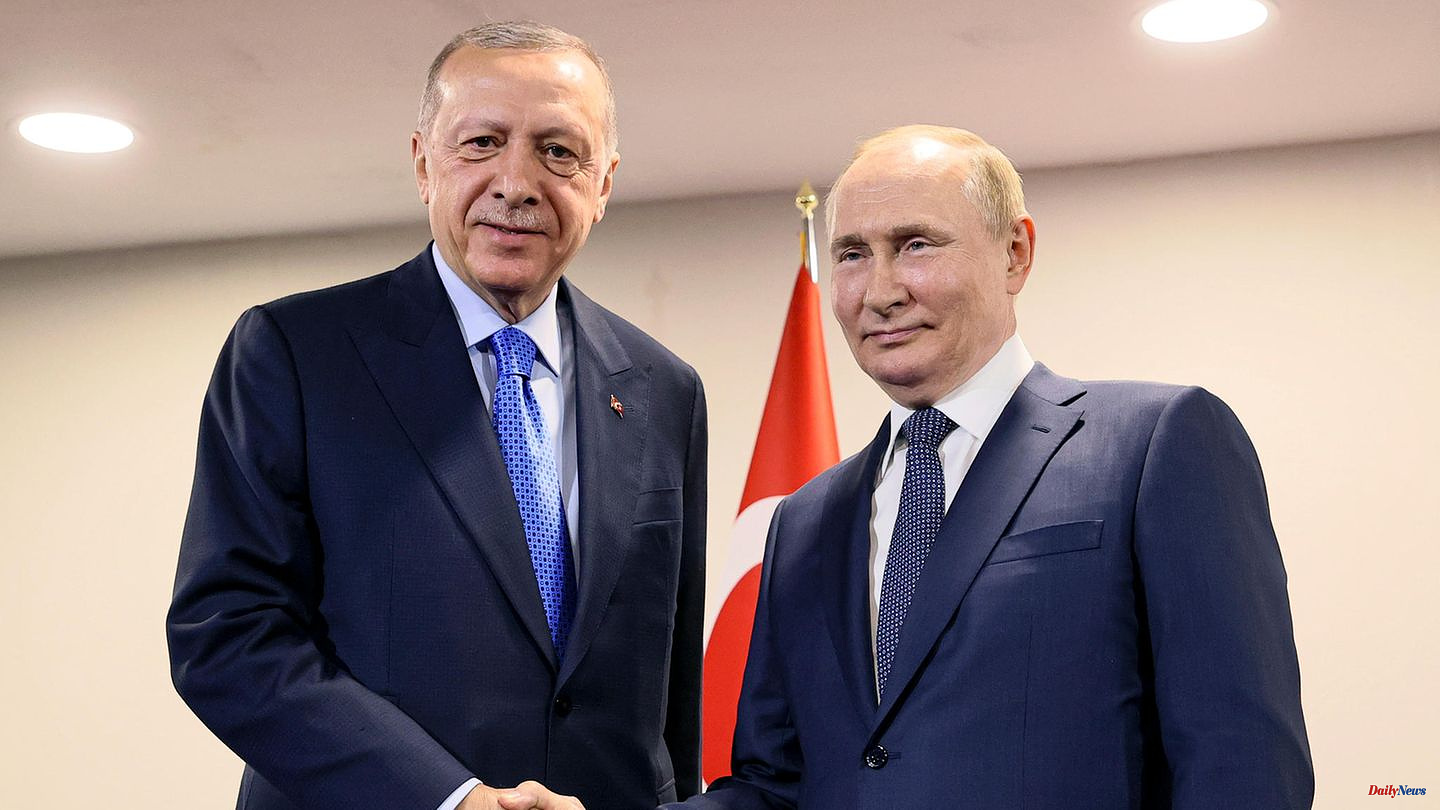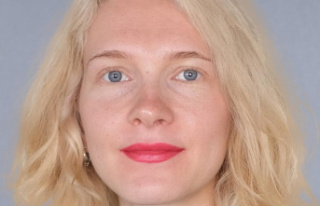Conflicts can overlap. One or the other dispute can be forgotten. Same now. While Russia is raging in Ukraine and the West is trying everything to put an end to it, Turkish President Recep Tayyip Erdogan is presenting himself as a mediator between the conflicting parties. And as a friend. It is not yet entirely clear which side he is on - whether on the Russian side or on the Allied side. The Turkish head of state is clearly friends with both parties. And the West forgets that it is actually at loggerheads with the autocrat over human rights violations, disregard for press freedom and military aggression towards its neighbors.
The fact that Erdogan is currently the last NATO member who can meet the Russian head of state in person gives him a few plus points on the European side. The President also urgently needs this. His country is on the brink of economic collapse, the Turkish lira has been in free fall for years, and there is hardly any country where inflation has hit the population as hard as it has in Turkey. It recently rose to over 80 percent. Among other things, in order not to aggravate the economic situation, Turkey has not joined the sanctions against Russia. In the West it has been frankly ignored. After all, Erdogan was at the forefront as a mediator from the start of the war and even invited the Ukrainian and Russian heads of state to Ankara for negotiations. There was praise for this, among others, from Germany's ex-Chancellor Gerhard Schröder.
But that's not the only treat the West is giving the Turkish head of state. "Ankara's flirtation with Moscow and the concern that Turkey could turn its back on Europe entirely contributed to Brussels treating Ankara with kid gloves with regard to the situation in the eastern Mediterranean and Cyprus," analyzes the Turkey researcher and journalist , Günter Seufert, in an article by the Foundation for Science and Politics. In this way, Erdogan can continue to intensify his war threats against neighboring Cyprus undisturbed.
That should go down well with the public. Especially for those who take the Aegean as part of Turkey for granted. In the minds of many citizens there is still the thought that the western states unjustly wrested many areas from the former Ottoman Empire. The fact that Erdogan is now threatening Greece so offensively in the Cyprus conflict should therefore secure him further votes for the upcoming elections in 2023 - and somewhat eliminate the negative points due to the tense economic situation.
Erdogan was also able to assert his interests in the negotiations on Finland and Sweden joining NATO. For their membership in the western military club, the two countries have promised the Turkish brake pad to fight the fight against terrorism at home and to work more closely with Turkey on arms exports and deliveries. As NATO allies, Finland and Sweden pledged their full support to the Turks in their fight against threats to their national security. With this deal, Erdogan had his sights set primarily on the Kurdish Workers' Party PKK.
But the Russian side also wants to be looked after in favor of the Turkish president. To this end, Erdogan met Putin again in person. This time in Sochi. In the seaside resort on the Black Sea, the two wanted to exchange views on current global and regional issues, according to the Communications Ministry in Ankara.
The chairman of the Turkish Foreign Policy Institute, Hüseyin Bagci, formulated Erdogan's goal to the German Press Agency. He travels to Russia "because he didn't get what he wanted at the last meeting in Iran." Bagci means the agreement for another Syria offensive. Putin recently advised against this. Will Erdogan's wish come true? Questionable.
Maybe a gun shop can help with that. According to the Kremlin, that was also on the agenda. Russia is particularly interested in the Turkish Bayraktar TB2 combat drone, which Turkey has already sold to Ukraine. In the evening, however, journalists from the state news agency Ria Nowosti said that the two presidents had not addressed the issue.
There are several reasons why Erdogan treats Putin more gently than his Western partners. Like the EU, Turkey is massively dependent on Russian energy supplies. Turkey covers 40 percent of its natural gas requirements and a good 25 percent of its oil requirements from Russian supplies. The same applies to the numerous Russian holidaymakers who travel to Turkey every year. In 2021, 4.7 million Russians vacationed in the country, which is actually also very popular with Germans. Thus, the Russian vacationers made up the largest share.
Turkey is also dependent on Russian drips when it comes to importing goods. In June this year, the value of imported Russian goods amounted to $5.1 billion. Compared to the same month last year, imports have more than doubled. The value of imports from Germany increased significantly less - from 1.92 billion to almost 2 billion. The Russian power plant builder Rosatom is also building the country's first nuclear power plant in southern Turkey.
And when it comes to food, too, Russia is actively involved in the Turkish economy. In 2021, 70 percent of Turkey's grain imports came from Russia. The export ban could have dramatic consequences for the population. Rising prices for bread and pasta would further worsen the already tense economic situation in the country. No wonder, then, that Ankara denies reports that Russia is transporting stolen grain from Ukraine to Turkey.
Nevertheless, in future Turkey will have to decide whose side it is on - on the side of NATO and the EU, i.e. the West, or on the Russian side. Seufert expects that the country will eventually turn to the western side. Because the number of those who oppose Putin is increasing. And Ankara is also observing that "Putin's vision of a Russian empire could conjure up more wars." But until then, Erdogan will do everything possible to benefit from the interplay. So far, the Ukraine war has been more than beneficial to his reputation in foreign policy. But Erdogan could also emerge as a winner domestically. That will become apparent at the latest in the presidential elections next year.
Sources: Business Insider, German Institute for International Politics and Security, ZDF.de, with material from DPA and AFP












